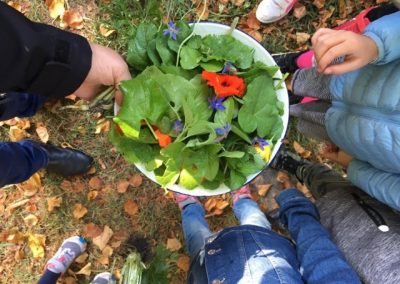Nolde & Partner
Nolde & Partner
Nolde & Partner for innovative water concepts look back on more than 25 years of expertise in the field of sustainable water and wastewater management.
We are specialised in the planning, design and R&D of decentralised wastewater recycling systems, in combination with heat recovery from wastewater in addition to decentralised rainwater management solutions.
For us, wastewater is a source of water, energy and nutrients and therefore an essential component of any Edible City Solution (ECS).
The long-standing experience and research results from the “Waterhouse” will provide quantifiable evidence with regard to the ecological, social and economical impacts of such innovations on the urban environment and will contribute to an efficient water resources management and increased water reuse with the active involvement of stakeholders and end users.
Another challenge would be to look for efficient contracting models to professionally operate and maintain these innovative systems.
The so-called “Waterhouse” in the centre of Berlin is a lighthouse project that demonstrates innovative and sustainable urban water management solutions at a decentralised, local level.
It incorporates household wastewater recycling and reuse in addition to onsite rainwater management.
The Roof Water-Farm project further explores the treated wastewater to produce food (aquaponics and hydroponics) and liquid fertilizer, in addition to the non-potable water reuse in buildings (toilet flushing, irrigation).
The Waterhouse is suited to demonstrating innovative water systems and services for efficient and sustainable water reuse in the city. It improves public awareness and acceptance for resource recycling and acts as a living laboratory for education and research and is frequently visited by researchers, experts and students from all over the world.
[ess_grid alias="grid-1"]
Updates für diese Seite an EdiCitNet schicken
Wir freuen uns, wenn du uns Updates für diese Seite per E-Mail schickst.


